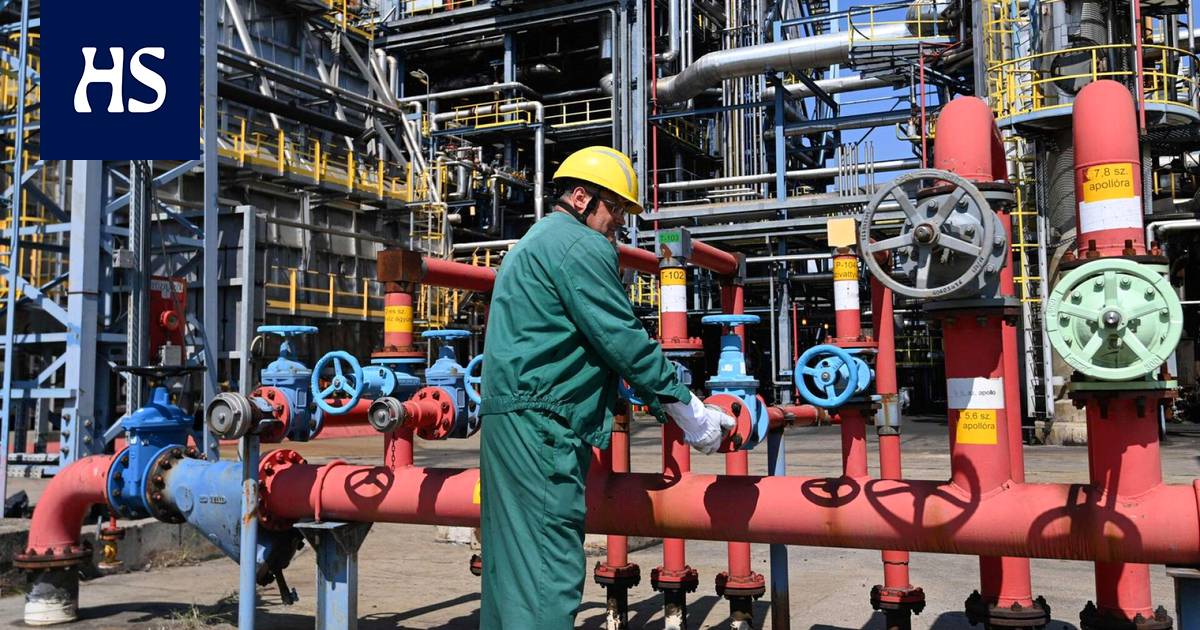The EU’s recent decision is better than nothing, but import duties would have had much more immediate effects, says Professor of National Economy Niku Määttänen.
EU member states succeeded after long and difficult negotiations to agree ban on imports of Russian crude oil and petroleum products.
Oil export revenues are by far the single most important source of revenue for the Russian state, and the EU Commission estimates that 90 percent of Russia’s oil exports to Europe will cease by the end of the year.
However, the import ban now agreed is only partial, as it does not apply to oil coming through the pipeline. In addition, the import ban on crude oil will not take effect until the end of the year.
EU countries also failed to impose an import duty on Russian oil, which could go a long way according to the expert rapidly reduces Russia’s oil export earnings and forces the country to lower its oil price. In addition, the researchers’ suggestion that EU countries could make oil payments to a so-called escrow account that would completely stem the flow of oil trade to Russia was not used.
Western countries sanctions imposed so far will significantly weaken Russia’s economic development in the long run, says Professor of Economics Niku Määttänen From the University of Helsinki.
However, if the idea was to limit the Russian administration’s ability to wage a costly and aggressive war in the short term, the effects of the sanctions now imposed will be much weaker, according to Määttänen.
Professor of Economics Niku Määttänen from the University of Helsinki.
“The ban on oil imports, which will come into force only at the end of the year, may even momentarily increase Russia’s oil revenues as the rest of the world prepares for future sanctions,” he says.
According to Määttänen, the EU’s recent decision is “better than nothing” but he would have liked much more immediate measures, such as import duties. According to Määttänen, they would operate flexibly and their impact would be significant if a united front were to be established behind them.
“It’s hard to see why the EU hasn’t started this. One explanation is that because voters are already so angry about the rise in gasoline prices, politicians are wary of an option that at first glance seems to be raising prices even further. ”
However, according to Määttänen, the logic is not waterproof, as the purpose of the import duty is to force Russia to lower the price of oil, in which case the customs duty would in practice remain to be paid by Russia. This is due to the fact that the EU is the largest buyer of Russian oil and that Russia is unable to quickly redirect its exports to the EU due to infrastructure bottlenecks.
Ramble Etla’s research director at the Business Research Institute is on the lines Tero Six. According to him, customs often have the idea that they will be paid by the buyer of the product, but in this case Russia would become the actual payer.
Etero Research Director Tero Kuusi.
“A lot of people will probably get the idea that we already have expensive oil, so why make it more expensive by hitting the duty on. But it completely forgets the confrontation of the market, ”says Kuusi.
He says he is surprised that import tariffs, which can be imposed quickly and relatively easily, have not been blown away. One reason, he said, may be uncertainty about how Russia might react to the tariffs imposed. On the other hand, according to Kuusen’s understanding, many economists in Europe have also not actively brought the idea of customs to the attention of decision-makers.
According to Kuusen, the problem with the escrow account may be that the solution would require a lot of administration. However, he said, too, is a viable option that has worked in the past with regard to sanctions against Iran, for example.
“As a result of the recent sanctions, Russia will certainly lose large revenue streams, but they will probably not be decisive for the country’s military power,” Kuusi estimates.
“
“Cynically, one might think that not all member states have enough desire to punish Russia when such an easier alternative is not introduced.”
Russian Urals crude oil has been at almost the same price as the North Sea Brent before the war, but has since collapsed by as much as 30-40%.
According to Kuusen, with regard to import tariffs, some policymakers may be hampered by the moral question of whether Western countries could somehow benefit from even cheaper oil as a result of tariffs, that is, as if gaining economic benefits through the Ukrainian war.
However, Määttänen points out that import duties would prevent a situation in which, for example, third parties would be able to benefit from the “discounted sale” of Russian oil and sell it to more expensive Europe.
“The pump doesn’t show the country of origin of the oil, so some players here are sure to make big profits already now. By all accounts, we could tax this profit and give part of it to Ukraine. ”
Määttänen points out that the problem is not the oil imported from Russia itself, but the fact that selling oil to Russia is a very profitable activity. Therefore, import duties would be a viable solution, he said.
“It may be that we researchers are not just noticing a practical problem in the customs, because the Commission has not been very transparent about the preparation of sanctions. One could also cynically think that not all member states just want to punish Russia when such an easy alternative is not introduced, ”Määttänen ponders.
Six point out that sanctions, whatever their form, always involve politically difficult issues and are often prone to divisions.
“Above all, sanctions should be built on a sustainable foundation. Their effectiveness is always related to how long they are credible and how well the cohesive front stays together. ”
#Sanctions #means #depleted #Russias #oil #revenues #immediately #cynically #member #states #punish #Russia




/s3/static.nrc.nl/wp-content/uploads/2024/04/web-2604buisolskyi.jpg)



